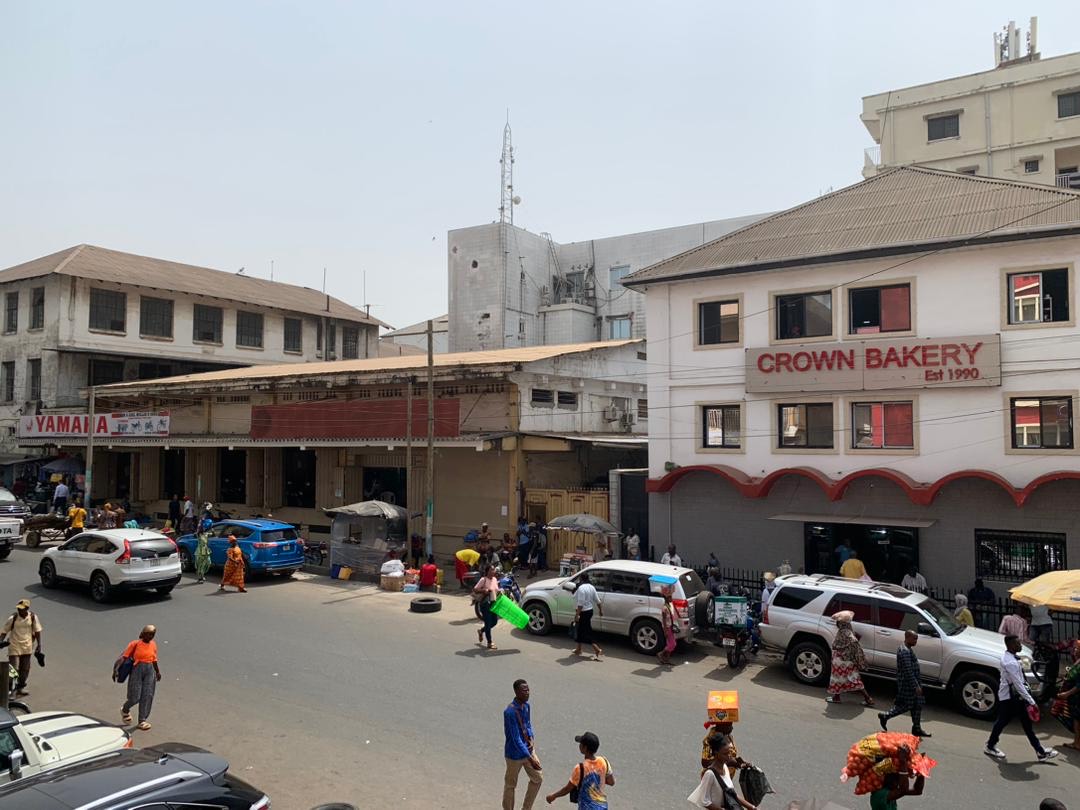In recent weeks, there have been widespread speculations that temperatures in Freetown have now reached unprecedented levels. Freetown residents, in particular, have been taking to social media to voice concerns about the extreme heat in the capital city. The Sierra Leone Metrological Agency in a February 15th 2024 statement warned citizens about what it described as an increase in temperature across the entire country.
As part of our #AskMeraki Series, where we respond to data-related questions from the public, someone asked whether temperatures in Freetown, Sierra Leone’s capital were also on the rise.
To answer this question, let’s start by looking at temperatures from selected cities and towns in Sierra Leone. The following table shows the temperature at 12:00 GMT on Thursday, 29th February, 2024 in ninety-eight town/cities. It also contains the recorded average, minimum and maximum temperatures at the selected locations this year. Air Temperature Data was obtained from the Wolfram Data Repository. The Wolfram Data Repository is a curated cloud repository of computable data resources, that is programmatically accessible and usable in the Wolfram Language.
From the table above, we find that average temperatures in Sierra Leone for the first two months this year ranged from 28.1 to 29.3 degrees Celsius. Mean temperatures are higher across towns in Sierra Leone’s eastern region where the average in places like Kenema, Kailahun, Koidu is 29.3 degree Celsius. In Freetown, average temperatures this year is 28.1. At the extremes, some places recorded temperatures of up to 39 degrees Celsius. The lowest temperature recorded in Sierra Leone so far this year is 20.6 degrees Celsius.
Is Freetown heating up?
Let’s now visualize peak daily temperature readings (that is, the hottest period during the day) in Freetown in January and February in the last decade (2014 to 2024) to investigate the growing public concerns about temperature spikes, this year.
As shown above, the average maximum daily temperature in January 2024 was 30.8, up from 30 degree Celsius in the previous year. However, this was by no means the hottest January in the last decade. With daily temperatures peaking to 31.7 Celsius on a typical day in 2017, that January was the hottest in the last ten years. It was followed closely by January 2022 when the highest temperature on any given day was 30.9 Celsius. Similarly, while the maximum daily temperature on a typical day in February this year increased to 30.6 degrees Celsius, from 30 degrees in 2023, there have been much hotter Februaries in the last decade. Mean peak daily temperatures in February 2017 (31.7 degree Celsius), and February 2019 (31.7 degree Celsius) were both higher.
Nevertheless, we conclude that with an average temperature of 28.1 degrees Celsius so far this year (Table 1), Freetown’s temperatures have indeed increased. In fact, average temperature in the capital city rose by about 0.8 degrees Celsius in comparison to the same period last year. It is worth repeating, however, that this increase is relative to 2023 and that Freetown has recorded much higher temperatures in the first two months of the year in the past. In 2000, 2017 and 2022, for instance, average January temperatures in Freetown were respectively 28.3, 28.5 (highest in forty-four years), and 28.3 degrees Celsius.
A closer look at the mean monthly temperatures in Freetown between 1980 and 2024 (the plot above) shows that apart from the steady temperature increase observed between 1980 and 2000, average monthly temperatures have fluctuated rather steadily since 2000, for most months.
In conclusion, our analysis supports the claim that temperatures in Freetown this year are higher than in 2023. We however note that the high temperature levels so far are not unprecedented.




